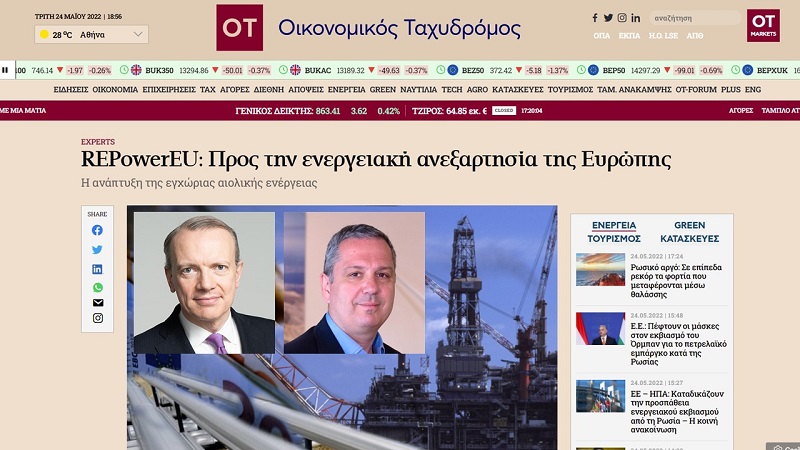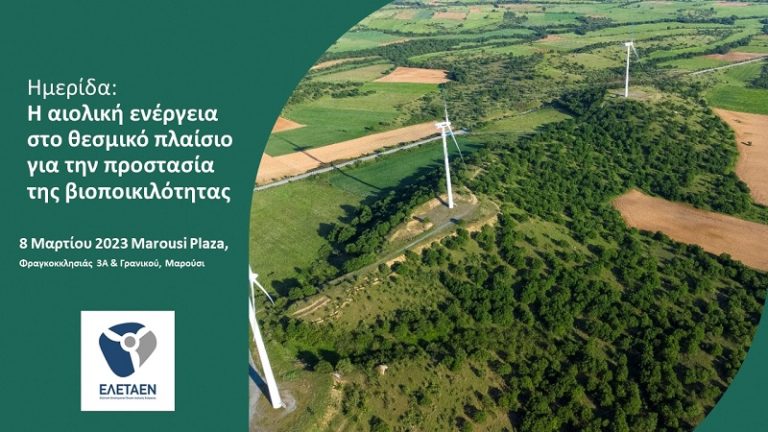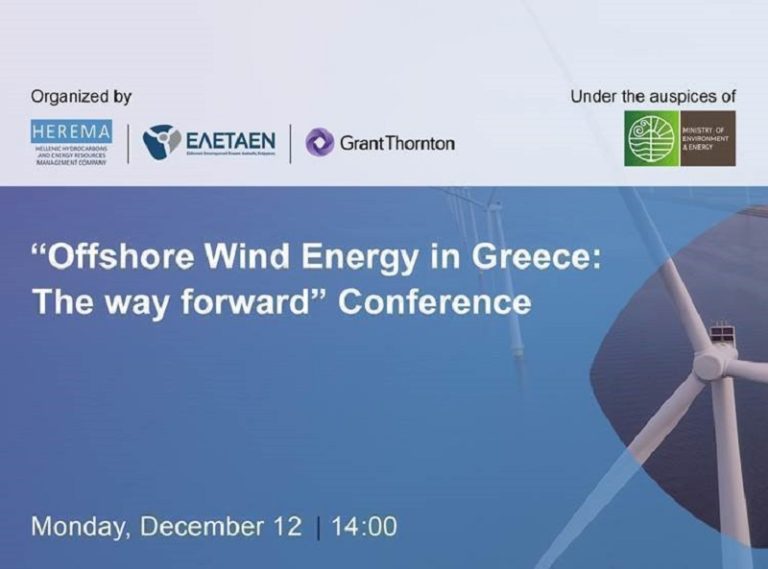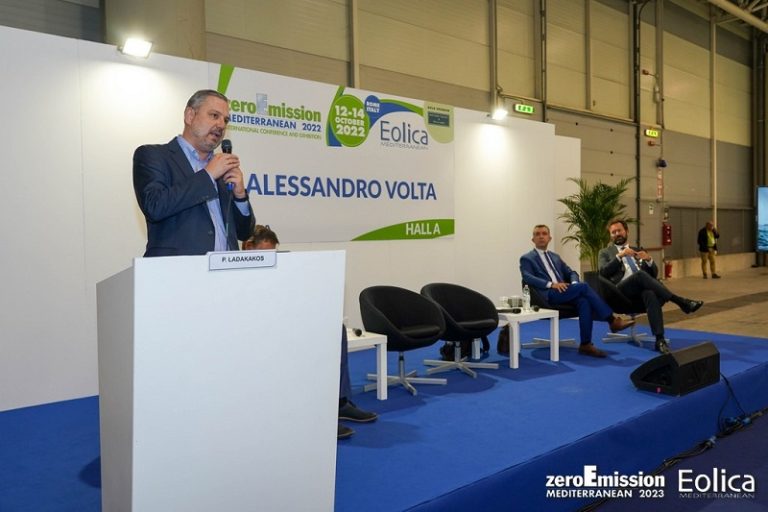Joint article by Giles Dickson and Panagiotis Ladakakos for REPowerEU at the Financial Post (Economikos Tahidromos)
![]()

Tuesday, 24 Μay 2022
Joint article by Giles Dickson and Panagiotis Ladakakos for REPowerEU at the Financial Post (Economikos Tahidromos)
In a joint article, WindEurope’s CEO Giles Dickson and the President of ELETAEN presented the key aspects for wind energy of the EC’s Action Plan REPowerEU.
The article was hosted by the website of Financial Post and you may see it in Greek HERE or download it in pdf HERE
The article follows:
REPowerEU: Towards Europe’s energy independence
The EU’s RepowerEU agenda – its energy policy answer to Russia’s aggression – hits the nail on the head.
It will drastically reduce Europe’s dependence on fossil fuel imports and accelerate the expansion of home-grown wind energy.
The war in Ukraine has reminded us that energy policy is security policy. A local, renewable and affordable energy system is better for our security. It reduces the danger of energy being used as a geopolitical weapon. It gives us freedom from unreliable and undesirable suppliers.
A big step towards energy security
This week the European Commission presented the RepowerEU Action Plan, its energy policy response to this exact threat. The Commission is crystal clear that the over-reliance on fossil fuel imports from Russia and elsewhere must end. They want to cut Russian gas imports by two-thirds before the end of this year. And to end all Russian energy imports by 2027.
Essential to this is the massive expansion of renewables and the electrification of Europe’s energy system. As it stands, only a quarter of all the energy we consume in Europe is electric. Fossil fuels make up most of the rest. The EU wants 75% of the energy system to run on electricity by 2050.
Tackling the permitting bottleneck
With RepowerEU, the EU wants to expand wind energy from 190GW to at least 480GW by 2030. It recognises that can only be achieved with a major simplification of the permitting of new wind farms.
Currently permitting takes too long and is too complex. The Commission therefore proposes to change the EU Renewables Directive.
Renewable energy projects will now be treated as being in the “overriding public interest”. This should be taken into account when balancing renewables with other interests. This means their build-out can be prioritised in the current energy crisis on a case-by-case basis and until climate neutrality is reached.
Περιοχές “Go-to”
Member States shall create renewable “go-to” areas where permits have to be awarded within one year, and there is a single environmental impact assessment (EIA) for the whole area.
Finally, RepowerEU keeps the existing permitting deadlines for the remaining areas – two years for normal green-field projects, and one year for repowering projects. The existing two-year deadline for permits now covers all permits including the environmental impact assessment.
Alongside this the Commission has issued detailed guidance and recommendations to national governments on how exactly they can simplify their permitting rules and procedures.
Ailing supply chain
The RepowerEU Action Plan hits the nail on the head on permitting. Now the Commission must focus on strengthening Europe’s renewables supply chains. The European wind energy supply chain is in poor health. All of Europe’s five turbine manufacturers are operating at a loss. We are closing factories and shedding jobs – just when we should be growing to meet the huge expansion of wind power Europe wants. If this continues, the Green Deal itself is in trouble, never mind Europe’s energy security goals.
Keeping the supply chain in Europe
To this end the EU must implement the right industrial and trade policies to improve the competitiveness and viability of the wind industry. Simplifying permitting will help because it will grow the market. Governments also need to design their renewables auction in the right way: they should proceed faster to new auctions and they should reward the added value the European industry brings in sustainability and system integration. The EU also needs to support the re-shoring of components and materials which we’re currently importing from Asia.
‘Freedom energy’
It is good that RepowerEU largely endorses the current EU electricity market design. In an increasingly complex market, there is one thing investors and companies eager to deliver the Green Deal don’t need right now – additional uncertainty.
Germany’s Finance Minister put it best: “Renewable energy is freedom energy”. With RepowerEU the European Union is making itself a bit freer by moving closer to a home-grown, clean and local energy system – which is independent of fossil fuel imports. In such an energy system wind energy has a central role to play.
Greece must not miss the opportunity to be at the forefront of achieving this goal. Its huge wind potential, onshore and offshore, is its 100% confirmed energy wealth. Together with investments in other RES, storage and electricity interconnections can make Greece an important pillar of Europe’s energy independence, offer new jobs and growth, provide cheap electricity at stable prices and, of course, contribute to tackling climate change.


